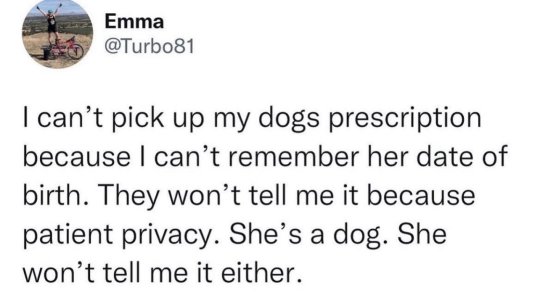#pet vet
Text
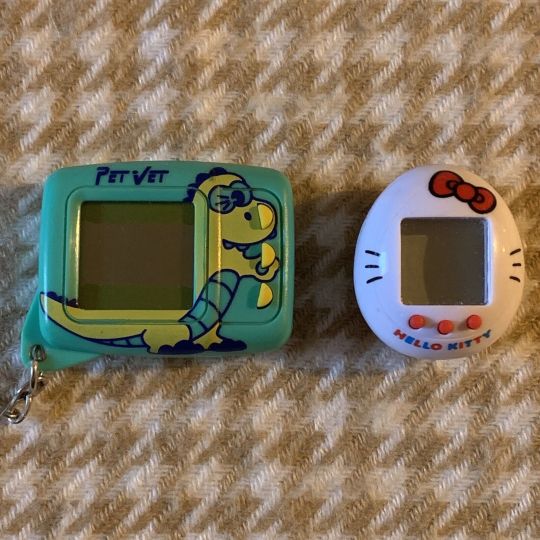
(source)
37 notes
·
View notes
Text
Un p’tit mardi dans la vie d’une calico!
Just another Tuesday in a calico’s life!
43K notes
·
View notes
Text
Summer Wellness Guide: Caring for Your Furry Friend in the Heat
As the summer heat sets in, it's crucial to ensure your furry friend stays cool and healthy. Here's a comprehensive guide to help pet parents navigate the challenges of keeping their pets safe and happy during the hot months.
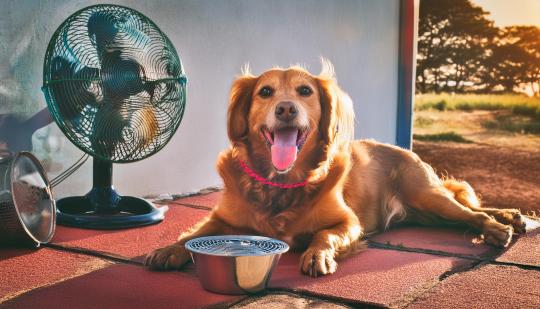
Hydration is Key
Always provide fresh, cool water for your pet.
Carry a portable water bowl when out for walks.
Watch for signs of dehydration like excessive panting or lethargy.
In addition to providing fresh water, it's essential to monitor your pet's water intake closely. Dehydration can occur quickly, especially in hot weather, and can lead to serious health issues. Here are some signs to watch for:
Excessive panting or drooling
Dry, pale gums
Sunken eyes
Lethargy or depression
Increased heart rate
If you notice any of these signs, consult with your veterinarian immediately. They can provide guidance on how to rehydrate your pet and prevent future dehydration
2. Avoid Overexertion
Exercise your pet during cooler times of the day.
Be mindful of hot pavement that can burn your pet's paws.
Provide shady spots for rest and recovery.
Summer is a great time to engage in outdoor activities with your pet, but it's crucial to do so safely. Here are some tips to avoid overexertion:
Avoid exercising your pet during the hottest part of the day (usually between 11 am and 3 pm).
Choose shaded areas for walks and playtime.
Monitor your pet's behavior and body language. If they seem tired or stressed, it's time to head back home.
Provide plenty of breaks for rest and recovery.
3. Grooming and Sun Protection
Regular grooming helps prevent overheating.
Use pet-safe sunscreen on exposed areas.
Consider a summer haircut for long-haired breeds.
Grooming is essential for your pet's overall health and well-being, especially during the summer months. Here are some tips for grooming and sun protection:
Brush your pet regularly to prevent matting and tangling, which can lead to overheating.
Use pet-safe sunscreen on exposed areas, such as the nose, ears, and paws.
Consider a summer haircut for long-haired breeds to prevent overheating and reduce shedding.
4. Safe Outdoor Time
Never leave your pet in a parked car.
Provide adequate shade in your yard.
Watch for signs of heatstroke and act promptly if needed.
When spending time outdoors with your pet, it's crucial to prioritize their safety. Here are some tips for safe outdoor time:
Never leave your pet in a parked car, even for a short period. The temperature inside a car can quickly rise to dangerous levels, putting your pet at risk of heatstroke.
Provide adequate shade in your yard by planting trees or installing a gazebo.
Watch for signs of heatstroke, such as excessive panting, drooling, or lethargy. If you notice any of these signs, seek immediate veterinary attention.
5. Additional Tips for Summer Pet Care
Keep your pet indoors during peak heat hours.
Use a fan to circulate air and keep your pet cool.
Provide a cool, wet towel for your pet to lie on.
Avoid using human sunscreen on your pet, as it can be toxic.
6. Summer Health Risks for Pets
Heatstroke
Dehydration
Sunburn
Fleas and ticks
Mosquito-borne diseases
Summer is a time when pets are more susceptible to various health risks. Here are some common health risks to watch for:
Heatstroke: This occurs when your pet's body temperature rises too high, often due to excessive heat exposure. Symptoms include excessive panting, drooling, or lethargy.
Dehydration: This occurs when your pet loses too much water, often due to excessive heat exposure or diarrhea. Symptoms include dry, pale gums and sunken eyes.
Sunburn: This occurs when your pet's skin is exposed to direct sunlight without proper protection. Symptoms include redness, swelling, and blistering.
Fleas and ticks: These parasites can cause discomfort, itching, and even transmit diseases. Symptoms include excessive scratching or chewing.
Mosquito-borne diseases: These diseases, such as heartworms and West Nile virus, can be transmitted through mosquito bites. Symptoms include fever, lethargy, or difficulty breathing.
Conclusion
In the summer heat, it's essential to prioritize your pet's well-being by ensuring they stay hydrated, cool, and protected from the sun. By following these simple guidelines, you can help your furry friend enjoy the season safely.
For expert advice and personalized care for your pet, visit Vetic Pet Clinic today and give your furry friend the best summer wellness support they deserve.
Bonus Tips:
Keep your pet's vaccinations up to date to protect them from diseases.
Schedule regular check-ups with your veterinarian to monitor your pet's health.
Consider using a pet-friendly insect repellent to protect your pet from mosquitoes and ticks.
Keep your pet's identification tags and microchip information up to date in case they get lost.
By following these simple guidelines and tips, you can ensure your furry friend stays healthy and happy during the summer season. Remember, a little extra care goes a long way in keeping your pet thriving in the heat.
#dogs#summer#cats#pet clinic#pet grooming#pet care#pet vet#dog breeds#dog lover#veterinary advice#pet health
0 notes
Text
A Vet’s Guide: 8 Things You Should Never Do to A Dog
0 notes
Text
A Comprehensive Guide to Pet Wellness Care
Pet wellness care ensures that your beloved furry companions lead long, healthy, and fulfilling lives. From routine vaccinations to preventive dental care and surgical interventions when necessary, proactive measures play a vital role in maintaining your pet's overall well-being.
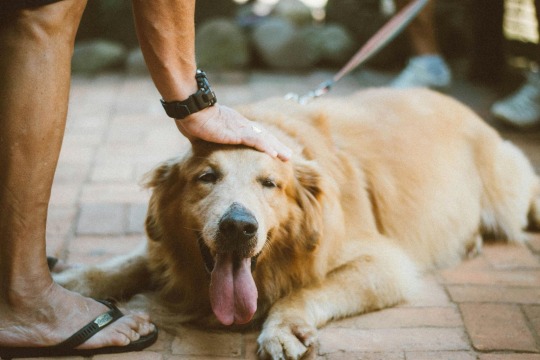
In this comprehensive guide, we'll explore the key components of pet wellness care, including pet vaccinations, pet surgery, and pet dental care, to help you provide the best possible care for your furry family members.
Pet Wellness Care Basics:
Regular Veterinary Check-ups: Schedule routine visits to your veterinarian for comprehensive health examinations. These check-ups allow your vet to monitor your pet's overall health, detect any potential issues early, and recommend appropriate preventive measures.
Preventive Medicine: Follow a preventive medicine regimen recommended by your veterinarian, which may include vaccinations, parasite prevention, and routine blood tests to screen for underlying health conditions.
Nutrition: Provide your pet with a balanced and nutritious diet tailored to their specific needs. Proper nutrition is essential for maintaining optimal health and preventing obesity-related health issues.
Pet Vaccinations:
Importance of Vaccinations: Pet vaccinations are crucial for protecting your pet against a range of contagious and potentially life-threatening diseases. Follow your veterinarian's recommended vaccination schedule to ensure that your pet receives timely and appropriate vaccinations.
Core Vaccines: Core vaccines, such as rabies and distemper, are essential for all pets and protect against diseases that pose significant health risks.
Lifestyle Vaccines: Lifestyle vaccines may be recommended based on your pet's lifestyle and risk factors. These vaccines protect against diseases that your pet may encounter due to factors such as travel, outdoor exposure, or boarding.
Pet Surgery:
Surgical Interventions: In some cases, surgical procedures may be necessary to address health issues or injuries in pets. Common surgical procedures include spaying/neutering, tumor removal, and orthopedic surgeries.
Pre-operative Care: Before undergoing surgery, your pet will undergo a thorough pre-operative evaluation, including blood tests and physical examinations, to ensure they are healthy enough for the procedure.
Post-operative Care: Following surgery, your pet will require diligent post-operative care to promote healing and minimize complications. Your veterinarian will provide specific instructions for post-operative care, including medication administration and activity restrictions.
Pet Dental Care:
Importance of Dental Health: Dental health is crucial for your pet's overall well-being. Poor oral hygiene can lead to dental disease, which can cause pain, discomfort, and systemic health issues.
Dental Examinations: Schedule regular dental examinations with your veterinarian to assess your pet's oral health and detect any signs of dental disease.
Dental Cleanings: Professional dental cleanings performed by your veterinarian are essential for removing tartar and plaque buildup, preventing gum disease, and maintaining oral hygiene.
At-Home Dental Care: Implement an at-home pet dental care routine, including regular tooth brushing with pet-safe toothpaste and providing dental chews or toys to help prevent plaque accumulation.
Conclusion:
By prioritising pet wellness care, including pet vaccinations, pet surgery when necessary, and preventive dental care, you can ensure that your furry friends enjoy optimal health and happiness throughout their lives. Regular veterinary check-ups, adherence to preventive medicine protocols, and proactive management of your pet's health needs are essential components of a comprehensive pet wellness care plan. With your commitment to providing the best possible care, you can help your pets thrive and enjoy many years of companionship and joy.
0 notes
Text
Learning anything about marine mammal training will make you re-evaluate so much of your relationship with your own pets. There is so much force involved in the way we handle domestic animals. Most of it isn’t even intentional, it just stems from impatience. I’m guilty of it myself!
But with the exception of certain veterinary settings where the animal’s health is the immediate priority, why is it so important to us that animals do exactly what we want exactly when we want it? Why do we have to invent all these tools and contraptions to force them to behave?
When a whale swam away from a session, that was that. The trainer just waited for them to decide to come back. If they flat out refused to participate in behaviors, they still got their allotment of fish. Nothing bad happened. Not even when 20-30 people were assembled for a procedure, and the whale chose not to enter the medical pool. No big deal. Their choice and comfort were prioritized over human convenience.
It’s almost shocking to return to domestic animal medicine afterwards and watch owners use shock collars and chokers and whips to control their animals. It’s no wonder that positive reinforcement was pioneered by marine mammal trainers. When you literally can’t force an animal to do what you want, it changes your entire perspective.
I want to see that mindset extended to our domestic animals.
#‘oh I can walk my dog off-leash down a crowded street’ why does that matter?????#the horse world is ESPECIALLY bad about this too#edit: the whips is referring to horses I have not seen anyone whip their dog#pets#horses#animal training#dog training#dolphin training#dolphins#belugas#orcas#killer whales#cetaceans#marine mammals#zoos#aquariums#cooperative care#vet med#vetblr
2K notes
·
View notes
Text


Looking like cats! Three weeks old tomorrow!
#pets#veterinary#foster kittens#kittens#frogs and bunny#bottle babies#had a trip to the emergency vet today but everyone is fine now
3K notes
·
View notes
Text
I been talking to a lot of ppl w cats lately (I volunteer at an animal shelter) and I didn’t know this needed to be said but
PLEASE FOR THE LOVE OF GOD DO NOT DECLAW YOUR CAT.
Declawing sounds very normal to people who aren’t educated on it so let me show you what it actually is.
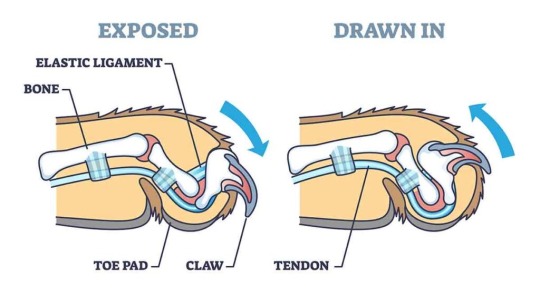
As you might notice from the diagram, the claw is attached to a small bone at the very end of a cat’s paw. They are fused to this bone, which on a human hand would be where your last knuckle is (the one right before your nail). When someone gets a cat declawed, they aren’t just removing the claw.
The entire last digit of the cat’s paw is removed. (See below)

This severely impedes the cat’s ability to balance itself, is extremely painful for them, and can make the cat extremely aggressive because it no longer has one of its main defense mechanisms! It can also cause many other medical issues down the line including infection, necrosis, and some cats are never able to walk correctly again. Most cats that have this done never fully recover from the procedure and are in constant chronic pain.
It is extremely inhumane and is illegal in only two states at the time I’m writing this!!!! (Maryland and New York) Cats should only have this procedure if it is a life or death situation, never just because someone finds a cat being a cat inconvenient for them. Don’t get a cat if you don’t want to be scratched or have some ruined furniture. If you want more information on this topic, I’d recommend Jackson Galaxy’s YouTube video on it, and to read up on some articles I will link in the comments.
I know I don’t usually post about these types of things, but it’s made me extremely angry to hear people mention getting their cats declawed so flippantly as if it doesn’t ruin the cat’s life, and always for an asinine reason like “they scratched my couch” or “they scratch my kids” THOSE ARE YOUR RESPONSIBILITIES AS A CAT OWNER. Treat your kids and peers to treat animals with respect, or don’t get a cat.
#so sorry followers I’m just so upset about it#I want to strangle every rich white woman that comes in and laughs about mutilating their cat’s paws#or bragging about how they couldn’t find any vet willing to do it#if you didn’t know#you didn’t know. but you know now so dont ever let it happen again#pets#cat#cat info#pet information#animals#important#very important#medical procedure
4K notes
·
View notes
Text
Vet!Yuu:(shakes bag of treats)
Ruggie:(running at mock speed to get there first)
Vet!Yuu:(pulls Churus out of fridge)
Leona:(suddenly appears and grabs Yuu from behind) That's mine right?
Vet!Yuu: (puts pear yogurt in a bowl)
Jack: (waits patiently for snack like a good boy)
Vet!Yuu:(pulls leftover BBQ out of fridge)
Epel: (staring like a unfed ferel chihuahua waiting for food bowl to be put down)
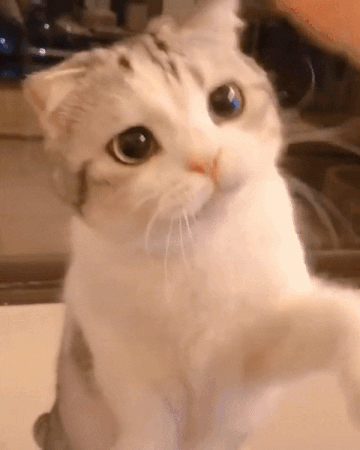
#you gotta treat your pets#but why is Epel here?#vet!yuu#twisted wonderland#twisted wonderland x reader#twisted wonderland yuu#twisted wonderland incorrect quotes#leona kingscholar#twisted wonderland leona#leona kingsholar x reader#twst ruggie#ruggie x reader#ruggie bucchi#twst jack x reader#jack howl x reader#jack howl#epel felmier x reader#twst epel#epel felmier
4K notes
·
View notes
Text

It's ginger cat appreciation day today, wanted an excuse to show love to my newly tripod-ed boy Chester
#finch art#ginger cat#ginger cat appreciation day#he dislocated his leg and redislocated it twice after the vet tried setting it back#the leg couldnt be saved in the end :( but he's been doing really well#chester#pets
2K notes
·
View notes
Text
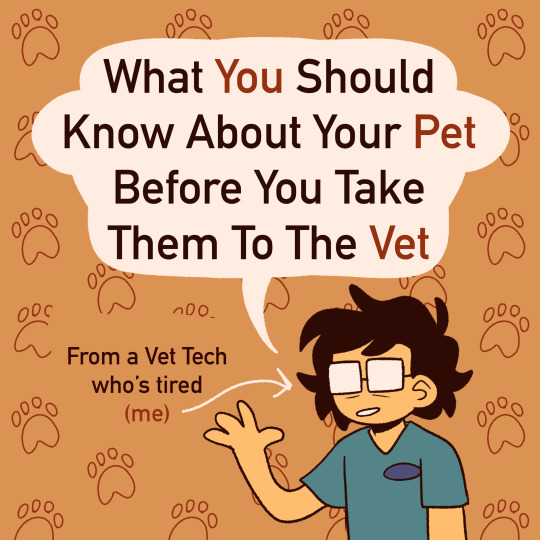
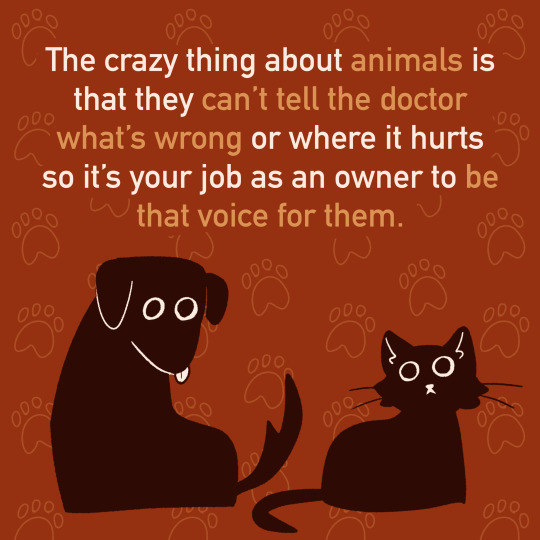


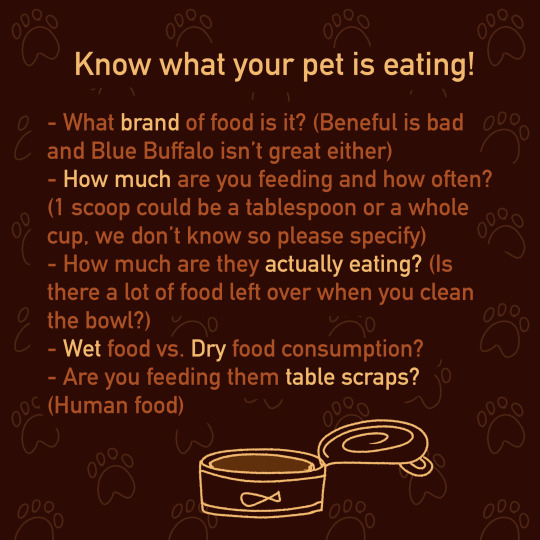
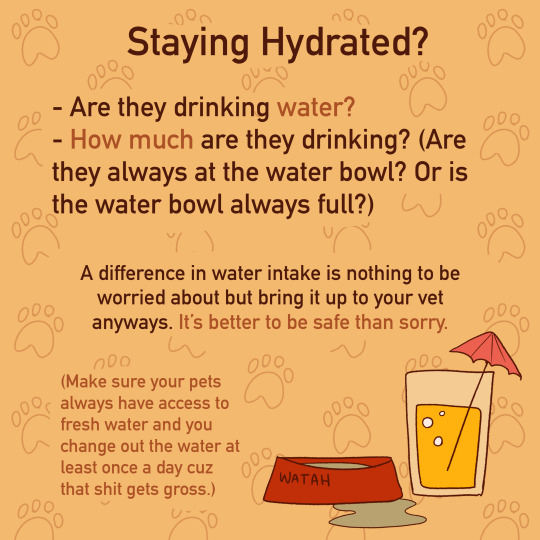
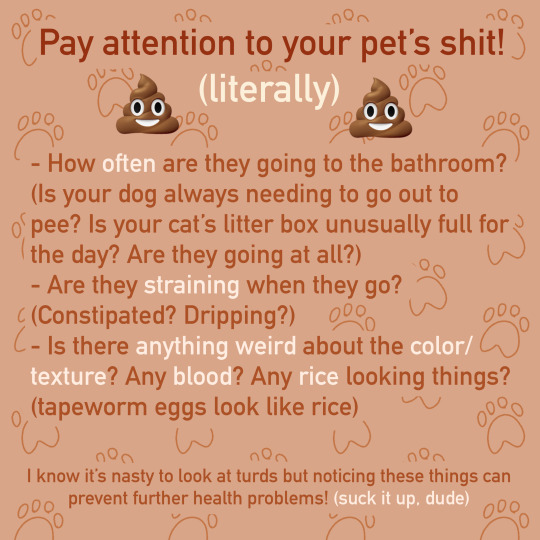
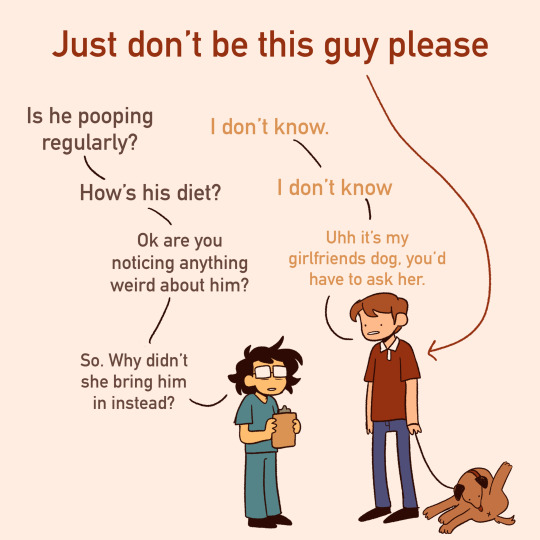
What to know about your pet before you take them to the vet (bars)
#shut up mei#animals#pets#cat#dog#veterinary clinic#vet#cats#kitties#dogs#puppies#drawing#artists on tumblr#fart#info#important#psa
13K notes
·
View notes
Text

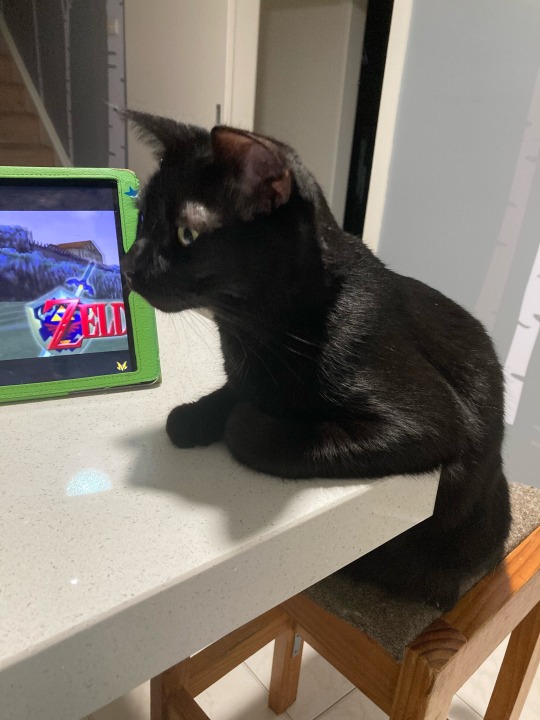
He sits.
578 notes
·
View notes
Text
One of the best things about being a veterinarian is the pure excitement from people when you compliment their animals. Even simple comments like “he has great manners” or “she’s such a personality!” make people’s eyes just light up with joy. I told one owner her dog was cute enough to be a children’s book character and she included that snippet in the family christmas letter. Another owner broke down into tears when I told her it was clear her dog was very well cared for and she was doing a great job with him. I try to always find something truthful and complementary to say about each animal and it’s usually the easiest part of my job.
A lot of things about being a veterinarian really aren’t fun but I always look forward to mentioning these sweet little unique things about each patient to their owner and having a chat about them. I love the way people love their pets.
#this is me encouraging my vet med followers to try doing this regularly- ESPECIALLY if you’re losing the spark#vetblr#veterinary medicine#animals#pets#petblr
1K notes
·
View notes
Text
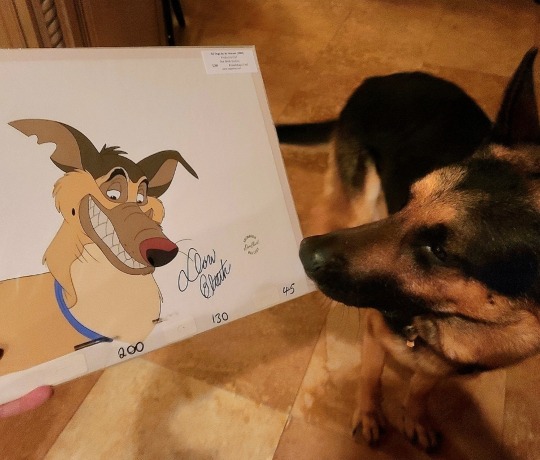
[insert movie title]
#thinking about him#I took this pic a month before he was diagnosed with cancer#I took him to the vet the day Blue was born#i miss him so much#my baby boy#Lobo#jackal's pets#he's absolutely fathering her from the great beyond#she has so many of his quirks and mannerisms#she knows just how to make me laugh like he did
248 notes
·
View notes
Text
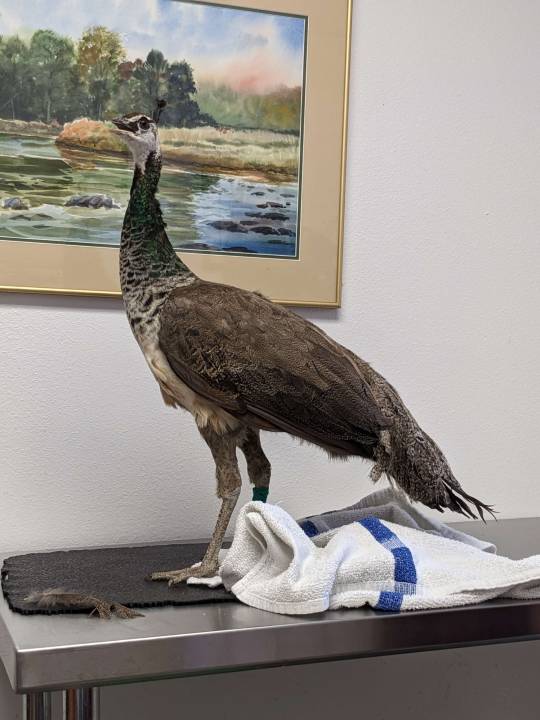
Congratulations to Wendy for passing her intake exam (mycoplasma test pending) and being the first of my birds to ever bite the vet for daring to touch her. This child is full on ready to hold her own in a fight. Upon arrival home, she got her last parasite med, and a pretty aqua bracelet to declare her a bird from Longfeather Lane.
#Wendy#peafowl#peahens#birds#my pets#she didn't just peck the vet by the way#she full on bit her and held on#she was absolutely FURIOUS about the indignity of it all#she is a wild type blue about my guess is 10 months old#Probably July 2022 hatch#I'm supposed to sell her with a boy from my groups but...#I mean look at those legs#it's hard to find a gal with legs like that#so we'll see how her temperament is by the end of summer
939 notes
·
View notes
